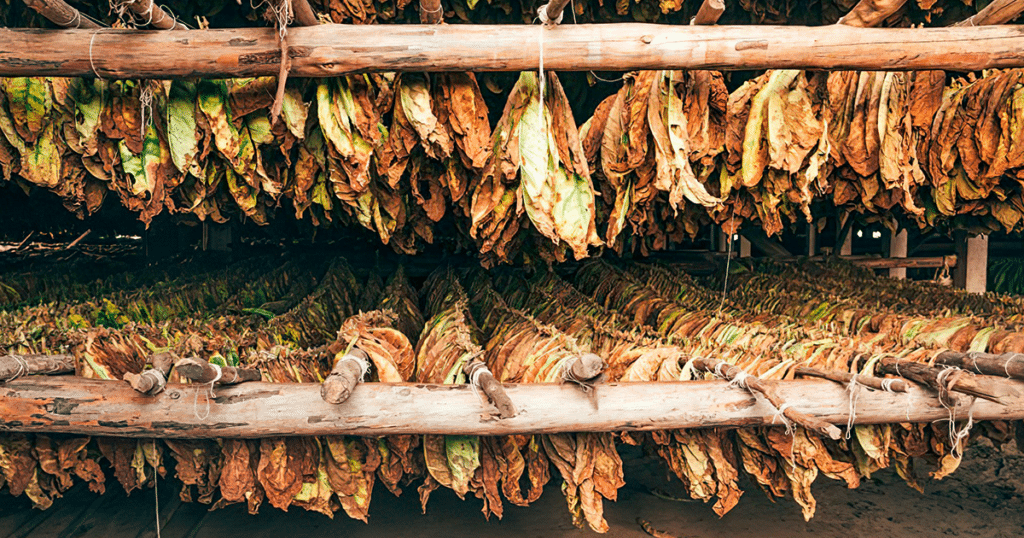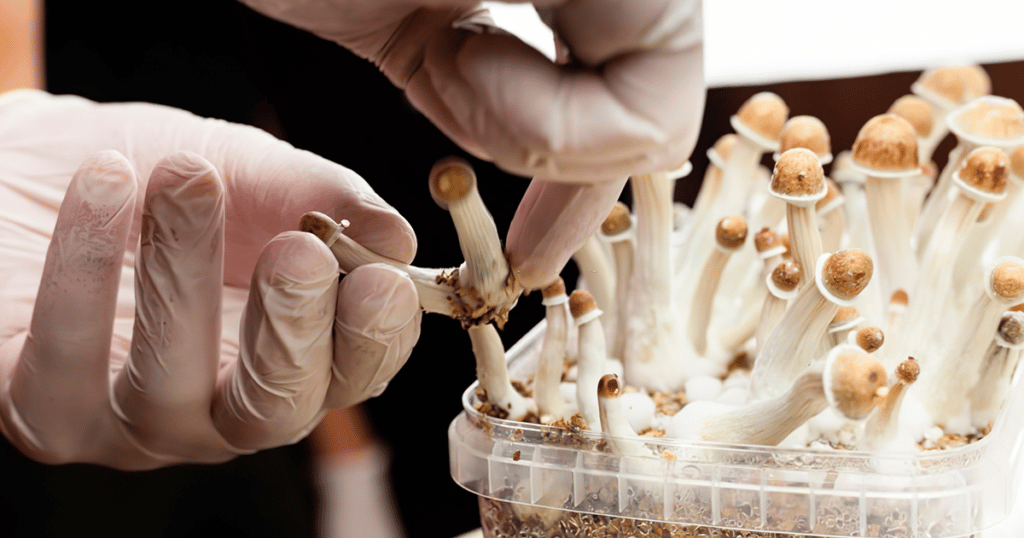Since the discovery of the Americas, companies and corporations have taken substances that indigenous people have been using for centuries in rituals and ceremonies and turned them into commodities to be sold for profits. It’s happened with tobacco, it’s happened with cocoa, and now, it’s happening with psychedelics.
The Beginning
Appropriating and profiting off indigenous plants and psychoactive substances by international corporations seems to be commonplace throughout history.
Just take a look at tobacco.
Tobacco is considered sacred by indigenous American tribes. But this plant that was once used in ancestral ceremonies and prayer rituals for thousands of years has been dissected and altered to the point where what we know of today as tobacco bears little to no resemblance to the plant used by indigenous peoples.
What used to be a plant reserved for rituals and ceremonies is now a commonplace stimulant that you can up at any grocery store, gas station or tobacconist.
And in the process of commercializing tobacco, these companies forced indigenous tribes off their land, making it near impossible for the tribes to cultivate tobacco of their own, negatively affecting indigenous cultures that have stood for thousands of years in the process.
And tobacco isn’t the only natural substance that has been taken from indigenous tribes to be used for profit by international corporations.
Cocoa was considered sacred in Aztec culture. But once it was discovered by European settlers, they quickly sought to control it, leading to widespread violence and the destruction of Aztec civilization.
Then there’s cannabis.
Cannabis isn’t a naturally occurring plant in the Americas; it was introduced to Mexican tribes by settlers in the 1600s. But after its psychedelic effects were discovered, the plant quickly became sacred and was reserved for tribal rituals and ceremonies.
Fast forward to today, and Western companies are growing and patenting cannabis seeds which originated from areas in Mexico where the plant was once considered sacred.
While indigenous American tribes are clawing their way back into the cannabis scene, psychedelics now seem to be following the historical trend of appropriation and profit.

Psychedelics
The rising use of psychedelic substances to treat mental health issues and conditions has seen more and more private companies popping up to try and grab their share of the proverbial psychedelic pie.
While this rise in industry and competition is beneficial for consumers, it seems to be coming at the cost of indigenous communities and tribespeople.
Through means of patents and lobbying, these private companies are working to keep the sale and manufacturing of these psychedelic substances exclusively in the private sector while excluding indigenous tribes from their involvement in the development and manufacture of these substances.
This approach means that indigenous tribes are once again being forced out of having any involvement in substances that they’ve been using for thousands of years.
By utilizing patents, companies are able to set up artificial barriers to access and rent-seeking procedures. Indigenous tribes and people of color are quickly shifting from people who’ve been using these substances for thousands of years to people who are being shut out of having any access to an industry that’s growing because of these same substances.
Another problem with this approach is that indigenous people have a much deeper knowledge of these substances than most companies and scientists today. These substances have been a part of indigenous cultures for hundreds of years, while the private market has only started researching these substances recently.

The Future
While the future does look a little uncertain for indigenous tribes and their involvement and acknowledgement in the psychedelics market, we are beginning to see some companies introduce initiatives aimed at helping support the cross-cultural relationship between indigenous nations and private companies.
We’re hoping more and more companies decide to work with indigenous tribes on the development and research of psychedelic products so that we avoid history repeating itself yet again.
Enjoyed that first hit? Come chill with us every week at the Friday Sesh for a freshly packed bowl of the week’s best cannabis news!
















